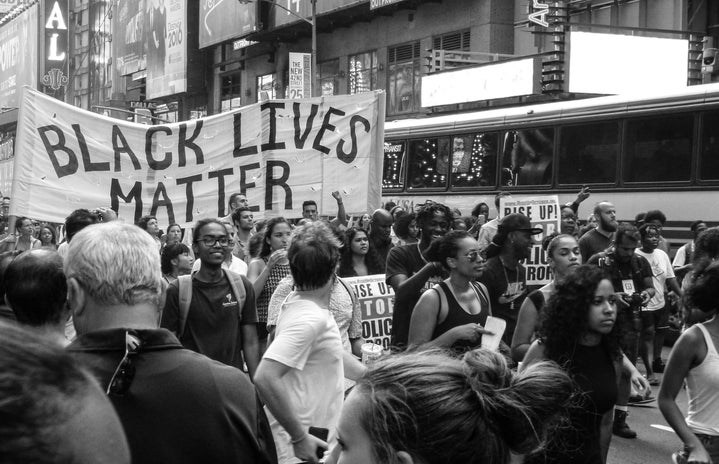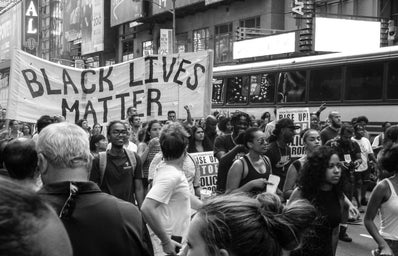I was 14 years old when I had my first breakdown about racism, after the 2016 shooting of Philando Castile. May he rest in powerful peace. It wasn’t the first time someone Black had died on video under police custody and most certainly, it wasn’t the last. It wasn’t even the first time I’d seen it, but it was the first time I saw it and had no real immediate reaction. I remember my first exact thought and it was, “Again?” Just incredibly monotone, lifeless and unsurprised. It was normal to me, something to not second glance at or question. That broke me.
I hated that I now expected it. I hated that I was desensitized to that kind of violence toward my racial community. Amidst my tears, I watched the video of his partner and her daughter after his death. They were in the back of the police car as the mom falls apart. Her daughter, who couldn’t have been older than five, tries to comfort her because she didn’t want her mom to end up like him.
I’m a sensitive person, and I like to think that I’m highly empathetic so to have that reaction messed me up. I’ve only cried that hard maybe two or three times in my life.
Here’s a secret they don’t tell you, at least not outright, about being Black: if you allow yourself to connect and fully feel every racial injustice you come across, it’ll probably drive you insane. At its mildest, it would give you depression. No matter how much information you consume about the tragedy your people have survived, no matter the figures you memorize, no matter how much you know, the question that you want the answer to, which you probably already know the answer to, will never satisfy you. There is no why. There is nothing we did to deserve any of it. No great human catastrophe we cause, no huge inhumane injustice we perpetuated for centuries, existing in our skin was reason enough for those things to happen to us. At least to those people.
There’s no way to fully get over it, and I don’t know if we can heal from trauma so great that’s altered everything about the way we operate as human beings.
But there are ways to live with it. One of those is finding your triggers and your limits when it comes to consuming content of racial violence toward your people. You have to know what sets you off. There are things you can and can’t witness, partly to maintain a healthy mindset but also to never numb yourself to the reality of your situation. It’s tricky, can’t tune in too much or it could destroy you internally, and can’t tune out completely or you could put yourself at risk with your ignorance.
The videos are too much for me. It’s too real. I know all this stuff is real, but the videos make it easier to imagine myself or the people I love in that situation. It’s hard to protect myself from the overwhelming anger, grief, frustration and other unpleasant emotions that rise to the surface. It’s harder to fight off the exhaustion and utter defeated feeling that can overcome me when witnessing those situations.
I still can’t bring myself to watch the George Floyd video, and I doubt ever will. There’s something dehumanizing about the widespread sharing of explicit Black murder, especially when there’s very little change as a result. At some point, it begins to feel like a source of entertainment rather than an actual issue that should be addressed. This is especially true given the long history of Black people being brutalized and murdered for entertainment. Hence, the term picnic (Google the meaning if you really want to know about how messed up the origin of that word is).
Being Black is beautiful and it’s one of my favorite parts of being alive. It’s also one of the most exhausting and emotional parts of it. It’s difficult to fully encapsulate the experience, but it’s not an easy one. It’s made even more complicated when we could be confronted by the most terrifying potential situations of our existence every time we log into social media.
There are a lot of people who don’t understand that and a lot who never will, so just a quick PSA: Before you share an incredibly traumatic video of racial violence, please put a trigger warning. It’s a lot easier than you think to send us into an emotional spiral with that stuff. Or at least me.
I don’t think any Black person’s ever in the mood to watch someone who looks like them die simply for looking like them. I don’t think any person is eager to see themselves in a victim of violent systemic racism because of the aspects they share with that person, aspects that are and always have been beyond their control.
Want to see more HCFSU? Be sure to like us on Facebook and follow us on Instagram, Twitter, TikTok, YouTube and Pinterest!


